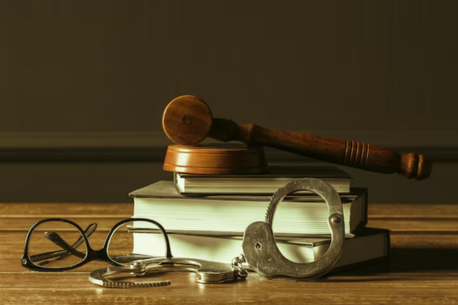SHRI GURUDATTA SUGARS MARKETING PVT. LTD. Versus PRITHVIRAJ SAYAJIRAO DESHMUKH & ORS.

FACTS: Appellant company entered into several Agreements and Sale Orders with one Cane Agro Energy (India) Ltd. (Cane hereinafter) between September 2016 and June 2017. Under these Agreements and Sale Orders, the appellant made advance payments amounting to Rs.63,46,00,000/- (Rupees sixty three crores forty six lakhs) for supply of sugar by Cane. It is alleged by the appellant that Cane failed to supply the ordered quantities of sugar and also failed to discharge its other obligations as agreed upon. Cane agreed to refund the advance amount due and payable to the Appellant. In part discharge of liability, a sum of Rs.1,00,00,000/- (Rupees one crore) was refunded by Cane on 30.01.2018. Subsequently, respondent Nos. 1 to 3 issued two cheques dated 30.03.2020 in favour of the appellant, one for Rs.45,00,00,000/- (Rupees forty five crores) and one for Rs.6,64,41,300/- (Rupees six crores sixty four lakhs forty one thousand and three hundred), amounting to a total amount of Rs.51,64,41,300/- (Rupees fifty one crores sixty four lakhs forty one thousand and three hundred). These two cheques were signed by respondent No.1, who is the Chairman of Cane. The said cheques were presented to the Bank but were dishonoured due to
insufficiency of funds, vide return memos dated 02.06.2020.
Issue: Can Company's Authorized Signatory Not 'Drawer' Of Cheque, be Directed To Pay Interim Compensation to the complainant under Section 143A?
Observation: The High Court's interpretation of Section 7 of the NI Act accurately identified the "drawer" as the individual who issued the cheque. This interpretation is fundamental to understanding the obligations and liabilities under Section 138 of the NI Act, which makes it clear that the drawer must ensure sufficient funds in their account at the time the cheque is presented. The appellants' argument that directors or other individuals should also be liable under Section 143A misinterprets the statutory language and intent. The primary liability, as correctly observed by the High Court, rests on the drawer, emphasizing the drawer's responsibility for maintaining sufficient funds. The general rule against vicarious liability in criminal law underscores that individuals are not typically held criminally liable for acts committed by others unless specific statutory provisions extend such liability. Section 141 of the NI Act is one such provision, extending liability to the company's officers for the dishonour of a cheque. The appellants' attempt to extend this principle to Section 143A, to hold directors or other individuals personally liable for interim compensation, is unfounded. The High Court rightly emphasized that liability under Section 141 arises from the conduct or omission of the individual involved, not merely their position within the company. Authorized signatories act on behalf of the company but do not assume the company's legal identity. This principle, fundamental to corporate law, ensures that while authorized signatories can bind the company through their actions, they do not merge their legal status with that of the company. Thus, The Supreme Court held that an authorized signatory of the company could not be considered as a 'drawer' of cheque, and therefore, could not be directed to pay the interim compensation to the complainant under Section 143A of the Negotiable Instruments Act of 1881
